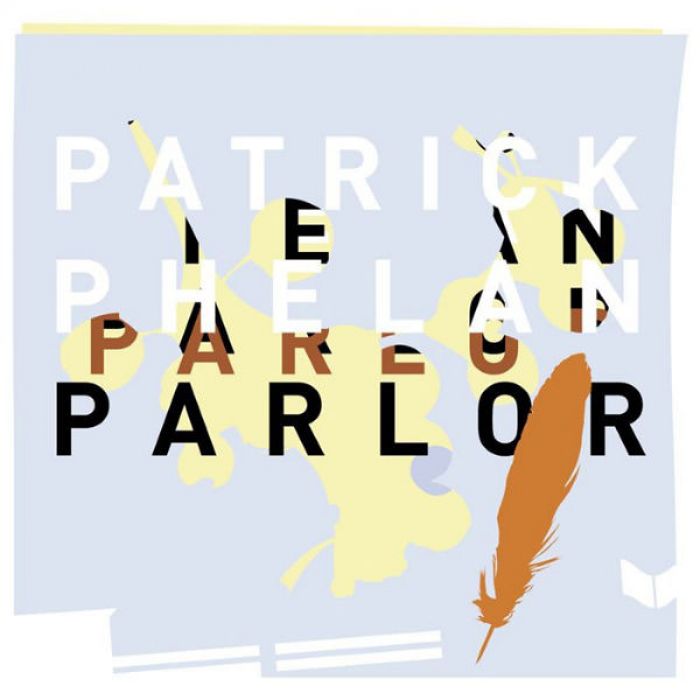
The last time I sat down and really listened to this CD, I was in my car. I was driving along on a bleak, rainy Saturday afternoon in November. Snow had fallen a few days earlier. It was too soon for it to completely have melted away, but just long enough for the grime and soot of the city to change that nice blanket of snow into something dull and grey. And she was sitting beside me…
As I listened to this CD at work the other day, that scene came flooding back into my memory. It’s the sort of scene that’s punctuated with a sense of longing, that maybe certain words can be spoken or certain actions taken to cross an emotional distance. But at the same time, there’s something tragically fragile about it as well, that something seemingly innocent might damage it forever. As a result, everything you do and say becomes carefully calculated in a way, all so that a relationship can become deepened. Or, at least that’s what it looks like after countless hours of brooding and analyzing.
Actually, all of the above qualities can be found in Parlor. There is a palpable sense of longing that permeates every song on here. It’s in the cryptic phrases that double as Phelan’s lyrics. They’re mere sketches, the barest of ideas, aching for the music to support them.
The most direct lyrics are on “Empty Chair,” a eulogy for a dead lover delivered in wintry imagery (“The snow beneath/These icy leaves/Had caused time to end for you/My love”). But at other times, they seem like Dadaist scribblings (“Task imaginable/A shaking trust/Past due/The affected view/Climate/Declined/Open form/Imitation of vanity” — “In Debt”). But when sung in Phelan’s breathless, Nick Drake-by way of-Sam Prekop vocals, they seem to echo from across emotional distances.
And there’s something very fragile about the music, building on the sounds of Phelan’s excellent debut album. Overall, the sound feels richer and jazzier, with a greater emphasis on the jazzier, samba-ish elements (as heard on the somber “Empty Chairs”). The songs feel much more composed and carefully arranged this time around, which is both blessing and curse. The arrangements sound better and fuller on this album. Even though there’s nothing quite as emotionally impacting as there was on the previous album (“Icestorm,” “The Round Couple”), there’s no denying that these songs are very pretty, and often quite beautiful and touching.
The core of “Arch & Effort” develops around carefully plucked guitar fragments and brushed drums. Meanwhile slide guitars float, ghost-like, in the background, echoing Phelan’s breathless voice. When the beat finally kicks in, and that slide guitar can finally burst out into the song’s foreground, it’s one of the album’s true moments of release. “In Debt” is the album’s brightest moment, as intricate guitar melodies and the bassline weave in and out of eachother and Phelan’s voice, anchored by a jazz-like beat.
“Advice” starts off with droning guitars (like the slidework on “Arch & Effort” slowed to a crawl), but ever-so-slowly, picked guitar fragments begin to appear. Here, the music feels especially fragile; you want to hold your breath, afraid that even breathing wrong might throw the slowly-forming song out of balance. “Unearned” is a slow-burning instrumental that brings to mind Labradford’s “Mi Media Naranja.” Its reverbed keys and minimal drones could provide the soundtrack for a drive at dusk, the stars barely visible and air still wobbly from the day’s heat. About halfway in, the horns float in like your breath on a cold November afternoon, adding to the song’s dreamlike nature.
The album ends as the ghostly elements of “Presume“ ‘s guitars, keys, and horns circle around a sparse acoustic guitar. There’s something very beautiful, and also very sorrowful, in how the sounds spiral around eachother. One could compare it to old ghosts wishing to finally rest, or the childhood memories that will come back to haunt you when you’re too old to do anything about them, or… you get the idea.
With an album this carefully arranged, it is tempting to sit down and pick apart each element. The delicate guitar melodies, the cryptic words, those strange atmospherics that hover on each song’s edge… there’s no lack of detail in these songs. But as with anything, there can be that urge to analyze it so much until you’re simply unable to appreciate it.
Sometimes, its okay to just sit and stare out that window, hoping that she might just appear coming down your street. Sometimes its okay to just sit there and long to cross that distance, though only a table separates the two of you. Sometimes it’s just okay to just listen, and wait. There’s a time to analyze, and a time to feel… and Parlor provides a good soundtrack for both.